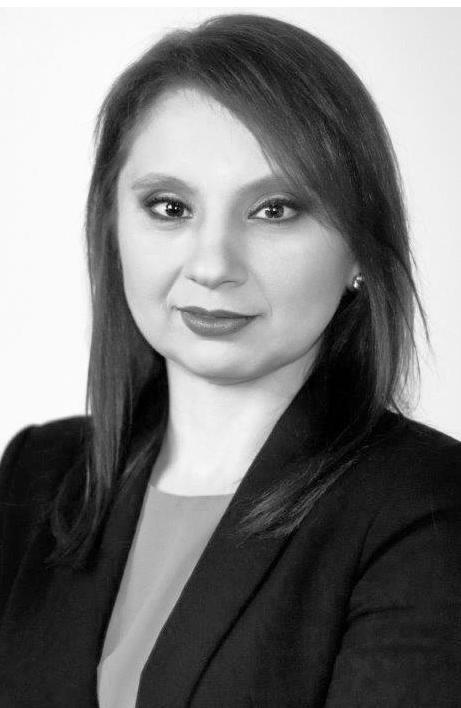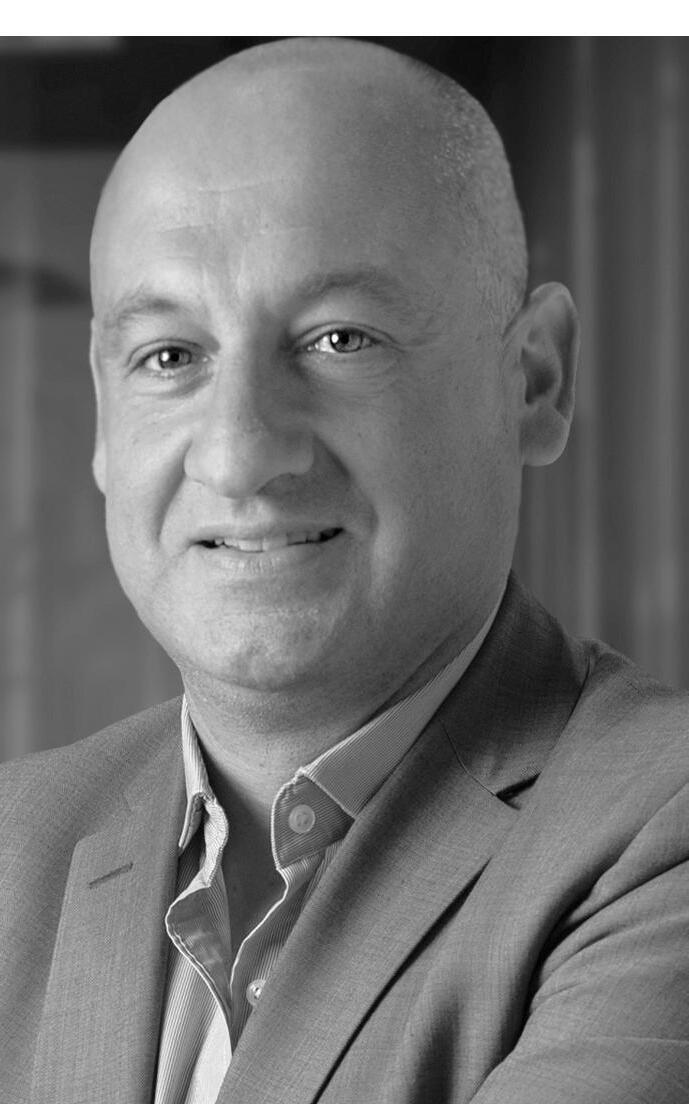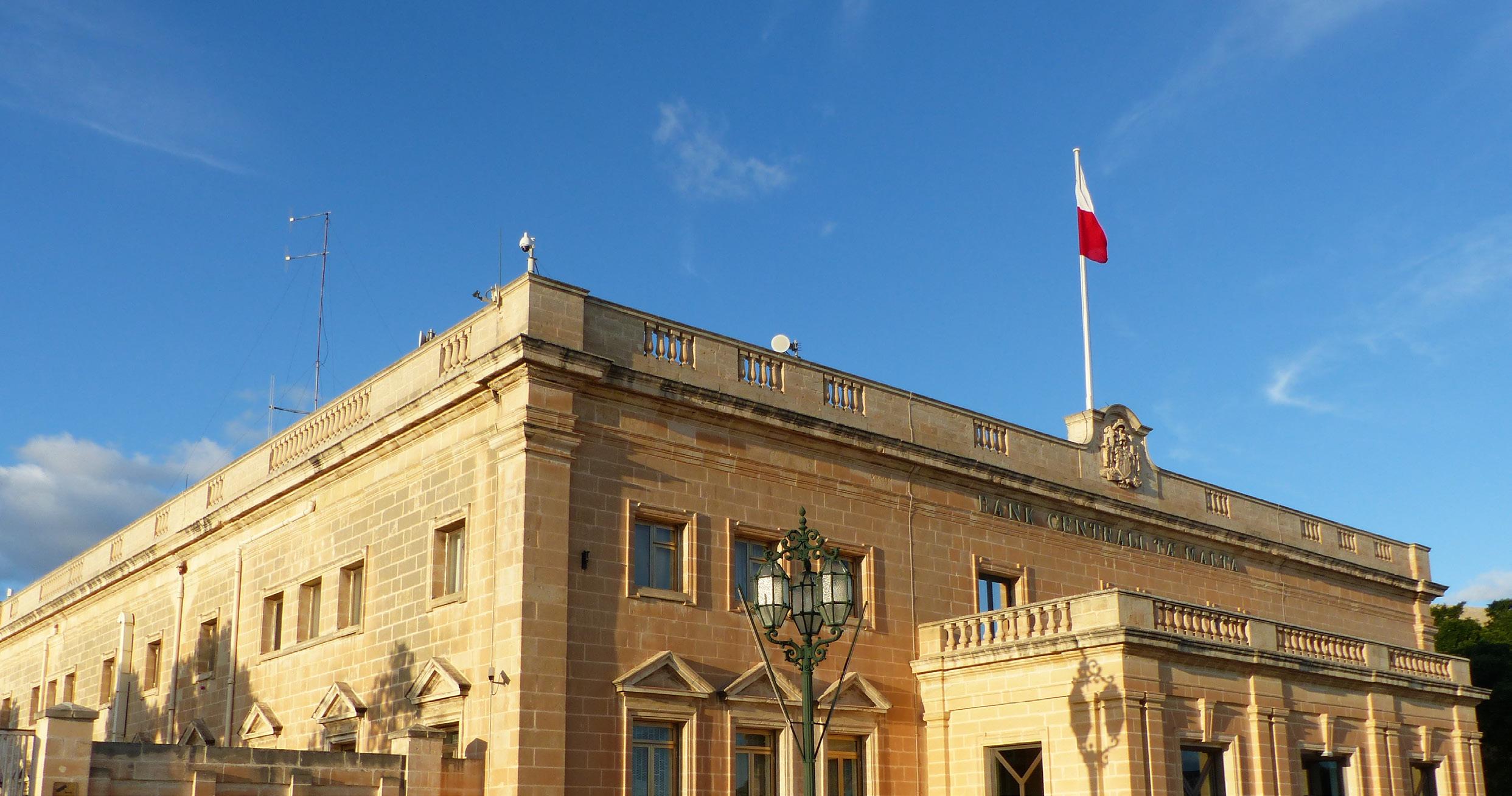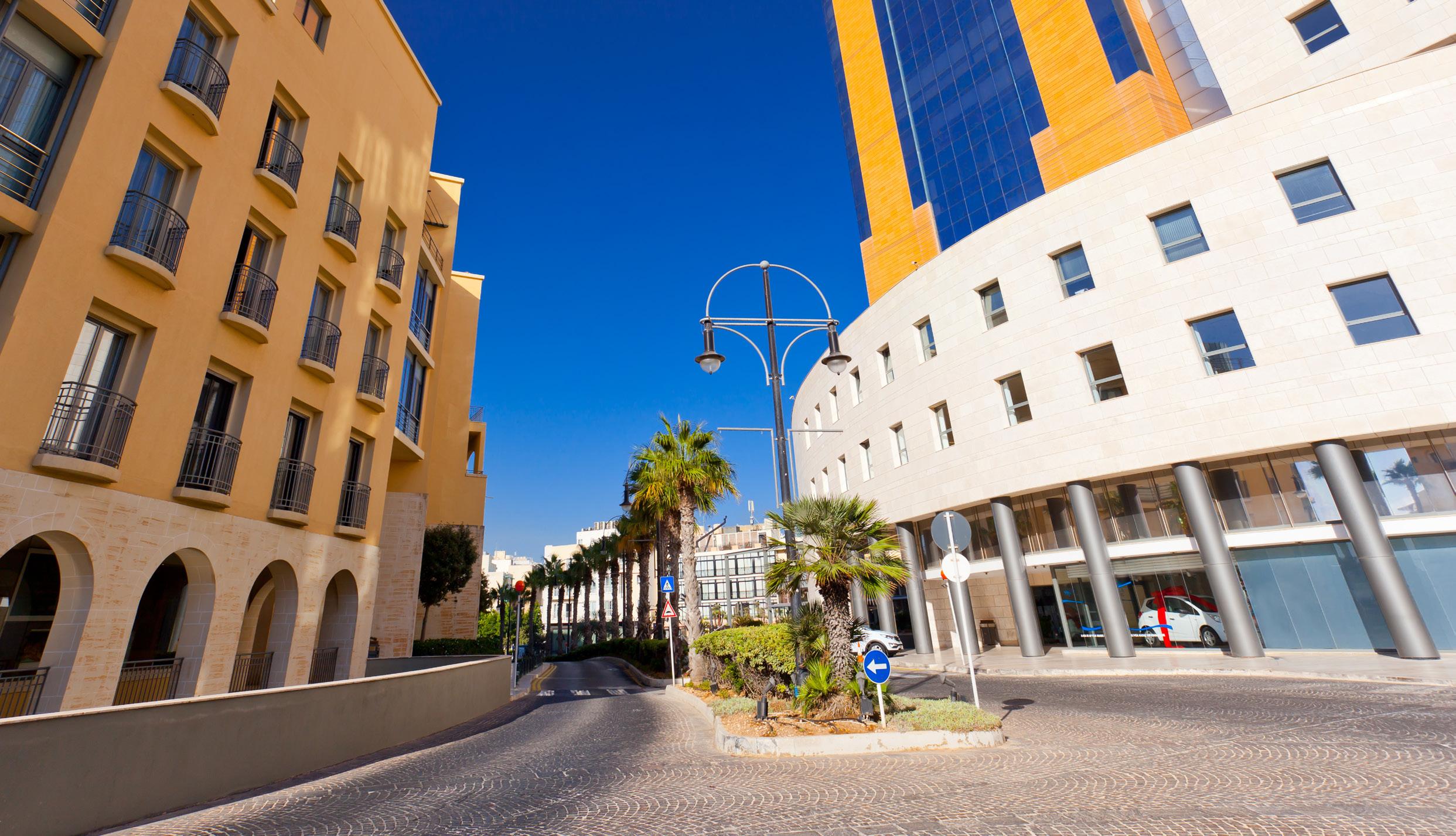MALTA IN FOCUS 2023



Select the best partner for your depositary and brokerage services and discover a wide range of custody assets including crypto, securities, real estate, and much more.
Keeping pace with change – how Malta is adapting to meet the shifting needs of fund managers
MALTA ASSET SERVICING ASSOCIATION
Navigating the changing tax landscape - Tax considerations for Malta-based asset management businesses
PWC MALTA
Notified PIFs: Flexibility and control through new fund structure
GANADO
Private equity and venture capital funds – the Malta option
07
swissquote.mt
10
FEXSERV FUND SERVICES
Depositary services –Increasing efficiency through process automation and digitization
SPARKASSE
An ideal jurisdiction for start-up hedge fund managers
BOV FUND SERVICES
Looking to the Future: Malta’s hedge fund offering

13
16
19
SWISSQUOTE
21
DIRECTORY
23

A small, but strategically located jurisdiction, Malta has successfully adapted its infrastructure, services and regulation to remain attractive as an international financial hub. As the financial industry continues to push the boundaries of innovation, Malta seeks to keep pace with managers looking to bring new products to market and meet their needs in terms of service, administration and compliance.
One of the key milestones in Malta’s journey to becoming a jurisdiction of choice for managers was the creation of the Professional Investment Fund (PIF). Providing managers with a regulated structure, the PIF allows managers to launch regulated funds quickly and efficiently. In particular, this structure is well-suited to funds catering for high net-worth individuals.
“Initially, the PIF was available to investors with as little as €10,000 to invest. However, the rules were amended to focus on qualifying investors, streamlining the process,” explains Anabel Mifsud, chair of the Malta Asset Servicing Association (MASA).
Formerly known as the Malta Funds Industry Association, MASA plays a crucial role in liaising with regulatory authorities to create a favourable environment for managers to operate here.
The high level of service offered by the Maltese eco-system is one of the distinguishing features the jurisdiction has to offer. The island’s small size allows for strong relationships to be built among industry participants as well as an open line of communication with the regulator – the Malta Financial Services Authority (MFSA).
“Many managers who consider launching a fund in Malta are impressed by the flexibility and bespoke service they can receive. It is a white-glove service which is also cost-effective,” says Mifsud. This element of
personalisation coupled with highquality professionals sets Malta’s proposition apart.
Demonstrating its agility, Malta was quick to transpose the Alternative Investment Fund Managers Directive (AIMFD) into local law when it was first introduced – this was done in July 2013, the same month in which the AIFMD came into force across the European Union. The jurisdiction went on to launch the Notified Alternative Investment Fund structure (NAIF) in 2014, the Maltese equivalent of the Reserved Alternative Investment Fund (RAIF) available in Luxembourg.
The island has also been prompt at identifying industry trends and capitalising on investor appetite. This is of particular relevance in relation to the crypto and digital assets space.
Malta has been at the forefront of regulating cryptocurrency and digital assets. “It was the first jurisdiction in Europe to establish written rules for cryptocurrency funds. In 2018, when the enthusiasm for cryptocurrency surged, Malta demonstrated its willingness to adapt to this development by allowing PIFs to invest in digital assets. This move enabled fund managers to capitalise on this nascent asset class through a quick-to-market regulated asset class while ensuring proper risk management measures were in place,” Mifsud notes.
As the private capital space continues to attract investment attention, given the appealing risk/return potential and investor desire for yield and diversification, Malta is increasingly looking to entice private equity and private credit managers, a segment that traditionally gravitates toward larger jurisdictions. The jurisdiction is mainly focused on attracting start-up managers in this space.
“There is a strong need to educate managers and also prospective investors on what Malta has to offer and the nature of the jurisdiction,” comments Mifsud, “For example, many still think Malta is an offshore financial centre, which it is not – it is a European financial centre which happens to be an island.”
This demonstrated the MFSA’s responsive stance to industry developments, particularly surrounding digital assets as a new, innovative sector. The regulator provided clarity on classification, the role of depositories, and the supervision of funds operating in the crypto space.
As a result, the MFSA’s proactive approach in this regard has attracted managers seeking to establish regulated funds investing directly in digital assets.
“To date, the PIF is one of the few, if not the only, regulated structure which allows managers to invest directly in crypto and digital assets,” says Mifsud. She notes that the successful PIFs investing in crypto, grew to need a different solution in view of them exceeding the €100 million threshold for PIFs.
Following discussions with the MFSA, the market has seen the first crypto PIF being converted into a fully regulated AIF investing directly in digital assets in 2022. This progress shows the jurisdiction’s ability to adapt to the industry’s needs.
The proposed Notified PIF structure (discussed in more detail later in this report) also displays this willingness to provide solutions market participants require. The structure due to be launched later this year will provide managers a faster route-to-market, which is particularly relevant to start up funds.
“With its cost-efficient fee structures and the high level of service offered, Malta offers an attractive alternative to other established financial centres,” explains Mifsud, “The jurisdiction is of particular appeal to those managers who do not need a ‘brand name’ jurisdiction behind their fund.”
While some larger jurisdictions have become synonymous with private equity, Malta can provide a much more bespoke service, even in this area and especially to smaller, startup managers. Mifsud outlines: “The industry here can hold their hand and guide managers through certain operational functions which are not within their core capabilities.” Larger financial centres are now used to handling larger fund structures and may have lost touch with the grassroots needs of the emerging manager sector. The service providers in Malta on the other hand understand this group’s requirements in detail.
The service providers play a pivotal role in supporting start-up fund managers through the licensing and compliance processes. They understand the challenges they face and have developed expertise in assisting them. “The service providers act as partners, guiding and supporting fund managers through the complexities of regulation and compliance, ensuring a smooth and efficient process,” Mifsud says.
Although Malta’s regulatory framework and the structures available rival other eminent jurisdictions in Europe, there are still some misconceptions among managers and investors which can sometimes serve as an obstacle to the growth of the financial industry here.
Managers will be more comfortable with presenting Malta as their jurisdiction of choice to investors once they fully grasp that they are offering the same fund structures present in places like Ireland and Luxembourg, just within a smaller eco-system. This is especially relevant for smaller, start-up managers who may be looking for a more cost-effective way to bring their funds to market.
Malta has been making several strides to keep pace with the changes witnessed across the financial industry and ensure its framework and offering is robust and fit for purpose. The fund structures offered together with the quality service providers active in the industry provide smaller managers with a fast, cost-efficient route to market, coupled with high levels of service they may not benefit from in other, larger jurisdictions.
However, there is insufficient knowledge of the way Malta compares to other European jurisdictions and therefore industry organisations like MASA will continue to share their knowledge and expertise to educate managers and investors alike.
Malta Asset Servicing Association
Anabel initially joined the Association as the appointed representative for AML matters. Since 2017 she has been part of the Executive Committee and eventually appointed as Chair in 2022. Anabel has extensive experience in Fund set up and servicing and leads a local Fund Administrator and AIFM Manager. She is also an appointed Governor on the Board of Finance Malta, a Board member of EFAMA and a visiting lecturer at the University of Malta.


Malta’s appeal as an alternative jurisdiction for asset and wealth managers is driven by a variety of factors. In particular, Malta provides start-ups and smaller/ medium-sized outfits looking to build track record or simply operate in a cost-effective environment with an attractive geographical location, EU membership, a highly educated multilingual workforce and also an efficient tax environment.
The international tax landscape is evolving in an unprecedented manner, resulting in increased pressures for international tax rules to be amended with a view to multinational entities paying a “fair” amount of tax. The pace with which new measures are being introduced in this sense remains unabated. These include global initiatives such as automatic disclosure requirements (DAC6 / DAC7); the global minimum tax (Pillar 2); and the Unshell Directive (ATAD3).
BOV Fund Services Limited, Malta’s top fund administrator, provides highly competitive, cost efficient turnkey fund set-up solutions. Other services provided to fund managers and fund promoters cover a comprehensive range of fund administration services including fund accounting, shareholder registry services, regulatory reporting and corporate services amongst others.
Other ancillary services include a full package of back office services that enable our clients to comply with international regulations as well as best market practices.
The extent and pace of this change has made navigating the international landscape more complex, meaning identifying the right way to structure one’s business and invest in foreign jurisdictions is even more critical. Nonetheless, amid such changes and challenges, Malta aims to remain an attractive jurisdiction for asset and wealth management businesses, even from a tax perspective.
Below are some key features of the Maltese tax environment relevant to asset and wealth management businesses.

Malta relies significantly on foreign direct investment, mainly due to its size and location, and therefore strives to be an attractive investment holding jurisdiction. The following are a few key features:

• Malta has an extensive network of inforce double taxation treaties with over 70 countries
• Malta has a wide participation exemption regime which covers both gains on disposal, as well as dividend
+356 2122 7148
www.bovfundservices.com infobovfs@bov.com
income, generated from qualifying investments
• Malta, as an EU Member State, is subject to both the EU fundamental principles, as well as the EU Directives
• There are no withholding taxes in terms of domestic legislation (subject to certain statutory conditions) on dividends, interest and royalties paid to non-residents
• There is no stamp duty on transactions undertaken by (Special Purpose Vehicles) SPVs investing outside Malta (subject to certain conditions)
Maltese tax legislation also contains specific provisions for the taxation of collective investment schemes, as explained further below.
Income generated by a collective investment scheme1 should be exempt from Maltese income tax, depending on its classification for Maltese tax purposes, as explained below.
Maltese legislation classifies funds according to the percentage of value of investments situated in Malta. A fund is classified as a prescribed fund if it is a Malta-based scheme and has at least 85% of the net asset value of its underlying investments situated in Malta. A non-prescribed fund is a fund that is either a foreign based scheme or has more than 15% of the net asset value of the underlying investments situated outside of Malta.
The income generated by a nonprescribed fund, except for income arising from immovable property situated in Malta, would be subject to a blanket tax exemption.

A prescribed fund is subject to tax in a similar manner, with one additional
1 a “collective investment scheme” is defined as any scheme or arrangement, which is licensed under the Investment Services Act or Notified in terms of the Investment Services Act (List of Notified AIFs Regulations)
consideration - the blanket exemption would not apply to investment income, as defined in terms of the Investment Income Provisions of the Maltese Income Tax Act. In such a scenario, the prescribed fund would be subject to Maltese income tax by way of withholding at the rate of 10% or 15% only in the case of local bank interest, on investment income.
This typically results in an efficient tax position. Furthermore, Malta does not impose a net wealth or similar tax.
Distributions made from taxed profits, or from profits which were subject to a final tax, are not subject to further tax in the hands of all unitholders. Investors receiving dividends from taxed profits may claim a credit / refund of the tax incurred by the fund if their marginal rate of tax is lower than 35%.
On the other hand, distributions from untaxed profits to a resident noncorporate person or to a non-resident that is ultimately owned by ordinarily resident and domiciled individuals, would attract a 15% withholding tax; whilst distributions of untaxed profits to a resident or non-resident company would not attract such withholding tax.
Dividends paid by a non-resident nonprescribed fund through an authorised financial intermediary (AFI) may be subject to a final withholding tax of 15% under the Investment Income Provisions. The resident investor still has the option to receive such dividends without the deduction of the withholding tax in which case these would be chargeable in Malta at the normal progressive rates of tax.
The specific tax treatment outlined above with respect to Maltese funds would not apply to a Malta-based management company (ManCo). Such ManCos would be taxable in Malta at the standard rate of 35%.
Having said this, through application of the Maltese refund mechanism, and/or the Notional Interest Deduction Rules, the effective rate of tax may be reduced, as explained below.
What is the Maltese refund system?
Upon a distribution of taxed profits by a Maltese company to its shareholder/s, the said shareholder/s should, subject to certain statutory conditions being satisfied, be entitled to claim a refund of a portion of the Malta tax suffered by the Maltese company on the profits so distributed – this is in terms of Malta’s system of taxation of dividends.
The extent of the tax refund depends on the type and source of income derived by the Maltese resident company and on whether foreign tax (if any) is being relieved in Malta.
The typical tax refund amounts to 6/7ths of the Malta tax suffered by the Maltese company on the profits so distributed, thereby reducing the overall Maltese tax (post distribution and post-tax refund) to around 5%. Such effective Malta tax is subject to a number of assumptions including that all taxed profits are distributed, that there would be no non-deductible expenses, etc.
Subject to some basic timeline planning, the 35% tax payment by the operating entity and the tax refund to the shareholder may be timed to fall within a few weeks of each other. Indeed, this tax refund system has been in place since 1994 (with certain legislative amendments occurring in 2007) and hence the system (including the timing of the payment of the tax refund by the Maltese tax authorities) has been tried and tested.
What is the Notional Interest Deduction?
In terms of the Maltese Notional Interest Deduction Rules, an undertaking may opt to claim a notional interest deduction (“NID”) against its taxable income for a particular year.
Such NID is to be calculated on the basis of the risk capital of the company that is utilised to generate chargeable income. For this purpose, risk capital is defined in the NID Rules as including share capital, share premium, positive retained earnings, and interest-free loans.
The interest rate is the risk-free rate set by reference to the current yield to maturity on Malta Government Stocks
with a remaining term of approximately 20 year, plus a premium of 5%.
The amount of NID that can be deducted is capped at 90% of the company’s taxable income for the year. If interest on risk capital calculated exceeds 90%, the excess cannot be taken as deduction against chargeable income for that year; however, it can be carried forward and added to the NID of the following year.
The application of the NID Rules could result in an effective Maltese tax of around 3.5% - this naturally depends, amongst other things, on the level of the risk capital of the company on which the NID is calculated.
Maltese income tax law does not specifically prescribe a minimum level of substance that a Maltese company is required to maintain, apart from some basic company law requirements, i.e. including having a registered office in Malta, this being the official address of the company in Malta, maintaining company records in Malta, having an annual audit of the Maltese company and filing of income tax returns, corporate returns and audited financial statements with the Maltese authorities.
Having said that, in the current international and local tax context, and with particular reference to the ATAD3 Directive being discussed at an EU level, an adequate level of physical presence and a genuine business rationale in Malta should be advisable. In this respect, on a high-level basis, typical attention points involve, but are not restricted to, the following:
• Holding the company’s board/ other management meetings/ annual general
meeting exclusively in Malta with the proceedings and physical attendance being minuted accordingly;
• Appointment of a number of Maltese resident directors (typically at least half of the board), who are knowledgeable on the operations of the Company;
• The negotiation of major contracts are materially negotiated, undertaken and concluded in Malta, including the approval and authorisation of contracts for signing and execution in Malta;
• Appropriate human and material resources allowing administration and ordinary management of the company from Malta; and
• The Company should lease/acquire locked up office space with proper signage and should have all the telecommunications facilities to enable the Company to operate from Malta including a phone line, internet, email domain and so on.
The pace of change in the international tax landscape has made investing in foreign jurisdictions more complex and burdensome. Nonetheless, while adhering to domestic and international obligations, Malta aims to be as flexible as possible in such a changing environment in order to be an attractive and efficient location for managers, funds and their investors.
Malta’s legal, regulatory and tax landscape for asset and wealth managers aims to allow for as much flexibility as possible in terms of fund structuring solutions which is key in facing the challenges and opportunities created by the current economic context.
Bernard holds a Bachelor of Accountancy (Hons.) degree from the University of Malta. He joined PwC Malta in 1998 and in 2007, he was seconded to the International Tax Structuring Group at PricewaterhouseCoopers Berlin. Over the past twenty years, Bernard has been involved in various tax and related assignments both internationally and locally for clients in a wide variety of industries, with particular emphasis on asset management. Bernard has led large tax assignments and he has wide experience in dealing with international cross-border tax matters.

Deminimis Alternative Investment Fund Managers (AIFMs) and third country AIFMs will soon have access to a new EU based fund structure which can offer flexibility, control and speed to market.
The Malta Financial Services Authority is on track to introduce the new framework for Notified Professional Investor Funds (Notified PIFs). This new structure will be attractive to Deminimis AIFMs and third country AIFMs looking for alternative fund structures based in an EU country. The fund will be an unregulated structure, with managers required to notify the Malta Financial Services Authority (MFSA), rather than going through a full blown licensing process.

“Investors’ main priorities are performance and manager skill,” says James Farrugia, partner in the investment services and funds team at Ganado Advocates. Whether a fund is regulated in the traditional manner has little impact on a managers’ fund raising capability. In light of this, Farrugia notes that the regulator, the MFSA, has evolved its approach to new products, creating structures which recognise the trend which is seeing the industry move away from regulated products for institutional investors.
The proposed framework for Notified PIFs decrees that these funds will be subject to a notification process and will not be licensed by the MFSA. This means managers can benefit from lower set up costs as well as fewer operational or regulatory costs, when
“Managers get the flexibility of a fund structured in an offshore jurisdiction, without having to venture outside the EU,” Farrugia says.
In addition to the speed to market offered by the Notified PIF, the structure also allows Deminimis AIFMs and third country AIFMs to have more direct control over the portfolio management process. Farrugia outlines: “This structure provides a direct link between a Deminimis AIFM/ third country AIFM and the Notified PIF, which means it allows the manager to manage the fund directly without the need to interpose a fund management company between the Deminimis AIFM/ third country AIFM and the fund. With an AIFMD harmonised fund, the Deminimis AIFM/ third country AIFM would need to have a full scope EEA AIFM between themselves and the fund, meaning they lose the direct link with the fund.”
in a chosen target through a Notified PIF rather than a Special Purpose Vehicle provides managers and their co-investors with certain advantages,” explains Farrugia, adding the structure can also be used as a feeder fund into a master structure. “A manager may have a Cayman Islands fund which they need to mirror in Europe as their institutional investors would rather invest in an EU-based vehicle. The Notified PIF is a quick and easy solution to this as it is straightforward to set up.”
Managers considering setting up their fund as a Notified PIF must be aware that this fund does not have access to the marketing passport under the AIFMD but can be sold under the national private placement rules of the target countries. These differ considerably as some countries require a simple registration while others might offer a blanket exemption.
compared to launching a fully licensed fund.
This proposed regime addresses the time-to-market pressure managers face as the MFSA will have 10 working days from the filing of a complete notification request to include the new structure in the official list of Notified PIFs.
“Speed to market is critical in investment management and having access to a structure which facilitates this is very attractive. This means managers do not need to go through a lengthy licencing process which anyway does not add value in the eyes of an institutional investor,” says Farrugia.
The Notified PIF structure can be considered a strong alternative to a fund domiciled in other fund centres such as Luxembourg, Ireland, the Cayman Islands, Bermuda or the British Virgin Islands. “The Notified PIF should be particularly attractive to managers based in major centres outside the EEA such as the US, UK, Switzerland, Singapore and the Channel Islands” notes Farrugia. This is due to the flexibility the structure offers. For example, under the Notified PIF regime, the fund can have multiple custodians and prime brokers and the selected custodians/ prime brokers do not need to be based in Malta.
This makes it an ideal product for Deminimis AIFM/ third country AIFM that has investors lined up or a specific objective in mind. For example, when looking to execute a club deal to acquire a target, managers who have the investors lined up can set up a Notified PIF in a short space of time and move ahead with their acquisition plans. In situations like these, the marketing rights or the lack of passporting ability has no impact on fund raising efforts, given the manager already has investors lined up.
It is also well suited to Deminimis AIFMs. These managers cannot access the Notified Alternative Investment Fund structure, which is a fully harmonised structure under AIFMD. Within such a structure, they can only be included as sub-investment managers engaged by a full scope EEA AIFM. “If they want to manage the structure directly, they can launch a licenced PIF (Professional Investor Fund). But given it’s a regulated product, procuring such a license can take up to three/ four months. The Notified PIF is essentially creating an unregulated version of the licenced PIF model, allowing for a shorter time-to-market,” Farrugia says.
The industry has also seen a growing appetite for co-investment vehicles. A Notified PIF can be used very efficiently as a co-investment vehicle. “Investing
“If you are looking to sell your fund to investors you already have a relationship with, then the fund passport does not offer much additional value. Having a fund with the ability to be passported is more beneficial to managers aiming to solicit new investors from new locations,” Farrugia says.

The Notified PIF structure is expected to be launched during the third quarter of this year.
James Farrugia is the Partner spearheading the firm’s investment services and funds licensing and regulatory consultancy activities. Leveraging his extensive experience working with the local competent authority, James is able to offer clients sound insight and practical solutions to their regulatory challenges. More recently, he has been involved in assisting a number of blockchain-based projects.
James regularly contributes to international journals associated with investment funds and has addressed a number of local and international conferences focusing on this sector.

Managing family wealth or venture capital in a structured manner has become more popular in recent years.
The best structures to use depend on asset protection mechanisms, tax and succession planning, jurisdiction, and so on. Family offices have historically used trust or foundation structures, maybe combined with special purpose vehicles, to hold and manage wealth. Such special purpose vehicles will, in turn, own assets like land/realestate, trading companies and private businesses, securities and even super yachts, aircrafts, fine art and so on –thus could require very bespoke asset management services.
Investment funds are a more viable alternative that offer more transparency and a robust and clear regulatory environment whilst still achieving the same benefits. Even where the investors are related, the legal framework of a fund structure provides clarity on the rights and obligations of the investors and the manager.
Instead of managing multiple, unrelated, special purpose vehicles or accounts, it is more efficient to pool the assets into an investment fund. This will require the structure to have some regulation. Such a layer of regulation and the involvement of licensed gatekeepers also provide reassurance and facilitate banking arrangements which have otherwise become very challenging for less transparent and complex structures. Malta offers an array of structures that are suitable for this purpose such as the Professional Investment Fund (PIF), the Notified AIF and more recently the Notified PIF. Notified PIFs, in particular, will only be subject to a notification process with the regulator making them very efficient in terms of time and costs, whilst achieving the same benefits of a fully licensed structure.

Whilst offshore structures have been typically very popular, the wrong choice of jurisdiction today can create a level of averseness and difficulties in day-today transaction processing with banks and financial institutions.
Two further key elements which might make even a single-family office wish to adopt a fund type structure for the assets it manages are, control and incentivisation. A fund structure can provide an element of control to the family office in the same way a fund manager controls a private equity fund - the family office can either own all voting shares in the investment fund or set up a separate investment management vehicle, issue all voting shares to that investment management vehicle and own all shares of that vehicle. The family office or the manager will be bound by a clearly drafted investment management

Managing Director, Fexserv Fund Services
Anabel joined Fexserv Fund Services in 2008 and today occupies the position of Managing Director. She started her career in audit and assurance with PwC where she was involved within different industries and worked in offices including Malta and London. Subsequently she took up accountancy and finance positions with leading entities operating out of Malta including an appointment within the Finance Department of HSBC Securities Services (Malta) Limited. Anabel is an EFAMA Board member, the appointed Chairperson of the Malta Asset Servicing Association (MASA) and is an appointed Governor on the Board of Finance Malta. She is also actively involved in various industry discussions and is a visiting lecturer at the University of Malta.

mandate, setting out investment objectives and strategies of the investment fund. By extension, a fund structure also permits the family office or manager to be remunerated using annual management fees, performance fees or even a fixed fee. Regular net asset calculations would be provided by third party fund administrators providing a further layer of transparency and assets could be kept in custody by reputable custodian banks or prime brokers – ensuring proper safekeeping and recourse on regulated entities with proper substance.
One of the first steps for setting up an investment fund as a family office vehicle will be to choose a suitable fund domicile. For obvious reasons, there will be a preference for a jurisdiction that does not tax the investment fund itself, i.e. which allows the investment fund to be operated as a tax neutral platform. Malta is one of the most popular and well-established jurisdictions for the formation and operation of investment funds. Investment fund structures in Malta allow also for a lot of flexibility on the investment policies/strategy and diversification requirements.
Costs are another element to consider. Malta does this very competitively both on setup and ongoing costs, whilst providing the same benefits of other more expensive jurisdictions particularly for new and smaller fund set-ups. More importantly, service providers in Malta offer a more boutique level of service to investment funds as they are typically not dealing with the larger multi-national operators and thus every client gets the right level of attention and due care. This is particularly important when highnet worth investors (which are the key factor for any family office or investment

manager) are exposed and interacting with such service providers in the operation of the fund.
Key elements of Malta as a domicile for investment funds include the following:


• Tax neutrality for the fund and an extensive double tax treaty network with both EU and non-EU countries;
• A modern, recognised and robust legal and regulatory system;
• Full member of the European Union (onshore);
• A wide pool of experienced investment fund professionals and service providers;
• English speaking;
• Boutique service approach to clients and their investors;
• One of the most cost-effective (value for money) jurisdictions;
• Fast turn-around times;
• Flexibility on investment policies and diversification requirements;
• Stable political and economical environment.
The use of a fund structure provides a recognised and well-established legal framework, which allows the family office and investment managers themselves to operate in a more coordinated, professional, supported, and scalable manner.
The desire for automation and digitisation of processes and procedural operative tasks derives from the very nature of the investment business itself. As a depositary to various types of Malta-domiciled Collective Investment Schemes (”CIS”), it is imperative to highlight the fact that a CIS is generally subject to a magnitude of different rules and obliged to comply with such rules on an ongoing basis.
Considering the various different structures of how an investment manager can package an investment strategy and market it to its suitable investor base, the author can highlight that the very existence of CISs’ service providers play an essential part not only from a regulatory requirement, but also from an operational point of view, among others, ensuring that the CIS operates in line with its licencing conditions and is compliant with all regulatory as well as self-imposed rules.
While each service provider plays an integral part within a CIS’s structure, the following article will focus on the duties of a depositary and the very core of its duties under AIFMD and the UCITS Directive, namely cashflow monitoring, including oversight of investor subscriptions and redemptions, NAV verification, safekeeping of assets, record keeping of other assets and asset verification as well as the oversight of investment restrictions, regulatory as well as self-imposed.
Given the magnitude of checks derived from this basket of regulatory rules and duties, the main aim is the assurance of having an independent and nonconflicted second line of defence in place, capable of monitoring CISs’ regulatory compliance in line with
the aforementioned directives and that no existing nor future investors’ monetary commitment in the form of an investment in the respective CIS is jeopardised as a direct result of failure to comply with regulatory imposed rules.
In order to perform such checks, the receipt and processing of data is imperative. From a depositary’s point of view, such data is sourced in various different file formats from multiple different sources, among others, a CIS’s fund administrator providing NAV related information such as balance sheet, trial balance as well as shareholder movement report and register, cash and position statements from counterparties, the depositary’s own records as well as supplementary securities’ fundamental data from data service providers such as Thomson Reuters or Bloomberg. Considering now that the aforementioned data sets are collected on a per CIS basis to conduct full and comprehensive checks, it will not strike the reader by surprise that conventional tools such as Microsoft Excel might be deemed insufficient to cope with the integration of such large amounts of data from various sources and formats but rather pushes it to the limits of its capacity - not to mention potential manual data manipulation beforehand.
As digital innovation leaves its footprint in the space of asset and fund managers, which seemingly have adopted and already harvesting the fruits of innovative solutions in the data processing and data management space, it might not be a surprise to read that automation, particularly relating to data processing and management has not only been topics of great interest to fund and asset managers, but also to depositaries.
Considering the small number of depositaries domiciled in Malta compared to the steady growth of CISs on the island, it is inevitable to adopt processes to manage the increased number of CISs by either adding staff, increasing efficiency through process enhancements, the adoption of automated solutions or through a combination of all three. While some depositaries have already successfully adopted one or more solutions to digitise and automate certain core duties and their associated processes, others are still exploring potential solutions which may provide valueadd. Compared to conventional tools, automated and digitised processes will allow depositaries to:
• Help increase the attractiveness of Malta as fund domicile when compared to other developed jurisdictions, simply by offering services using state of the art technology

• To further grow and support the local fund industry by providing the best quality service
• Offer competitive pricing structures as a direct result of derived synergy effects
• Reduce manual data manipulation and error rates
• Conduct standardised reviews in a desired frequency
• Improve timing from detection to reaction as part of its oversight function
• Adopt processes following new regulatory requirements
The latter is likely to be considered the most pertinent point, given the everdeveloping regulatory requirements and their potential impact on the business as usual operative tasks. Reflecting on recent developments with the
introduction of the Sustainable Finance Disclosure Regulation (SFDR) and ESG regulation, it will be interesting to see the local regulator’s expectations with respect to SFDR disclosures and the extent to which responsibilities will involve depositaries’ monitoring duties.
If this becomes a direct obligation for fund managers, it will automatically result in an indirect oversight obligation for depositaries. This further strengthens the previous argument for automation and digitisation of processes. it seems somewhat obvious that firms able to cope with regulatory expectations and their timely implementation in their existing monitoring framework will clearly strengthen their position in the market, subsequently resulting in a clear competitive advantage. It also further ensures comprehensive oversight as second line of defence by protecting a CIS’s most valuable asset - the investor. Once again, in the presence of already established automated processes it might be an easy task to simply add ESG or even SFDR related checks to the existing oversight framework.
Considering the rapidly developing regulatory landscape, concluding remarks may suggest that a depositary’s monitoring framework should be resilient and flexible enough to implement changes in a timely and efficient manner. One might also conclude that automated and digitised processes will not only have positive repercussions on reviewing frequencies but also exceed in providing standardised outputs. This will not only benefit the depositaries’ own record keeping obligation from an audit point of view, but also create value add in terms of reporting to external parties like CISs’ Board of Directors.
Generally speaking, further considerations also suggest that automation and digitisation of processes do not only make processes more scalable, but might also have positive effects on cost drivers, ultimately contributing to the overall investor value. Achieved thorough synergy effects, it might indirectly assist increasing investor value per share, without suffering repercussions on the quality of service provided.
Mr. Jaeger graduated from the Management Center Innsbruck in Austria with a BA. in Business and Management and obtained a MSc. in Financial Sector Management from the University of London.
Johannes has 6 years of experience in Banking & Finance in Austria and relocated to Malta in 2013 joining the Depositary Services team at Sparkasse Bank Malta plc. He looks back at 10 years of experience in Depositary Services and holds the position as Manager Depositary Services since 2020.

We
Over the years, Malta has been experiencing strong and consistent growth in its financial services industry and despite its size, is fast becoming the jurisdiction of choice. Thanks to its innovative fund structures within the alternative space as well as those targeting sub-threshold asset managers, the cost competitiveness and the regulator ’s (the Malta Financial Services Authority) charter that ensures regulatory timeline efficiencies, Malta is now competing with international leaders in this space.
What renders Malta an excellent jurisdiction for relocation and domiciliation is its ability to strike a balance between two traditionally opposing forces – the need for robust regulation and compliance, and the dynamic, ever-changing needs of the industry for efficiency, flexibility and pragmatism. Indeed, Malta allows fund promoters and investors to operate with peace of mind in a stable and resilient economy. Recent economic success has set Malta up as the commercial hub of the Mediterranean, where Malta is today supported by an economy that thrives on corporate services, tourism, education, ICT, pharmaceuticals, aviation and the maritime industry.
Besides vaunting cost-effective setup and operational costs, Malta has an advantageous tax regime, in full conformity with the EU rules, which allows companies to benefit from the full imputation system, whereby a tax refund system applies for company’s shareholders who are not resident in Malta, which refund reduces the effective rate of tax to 5%. Asset management companies run by foreign interests in Malta benefit from such a regime.
Over the last few years, Malta has firmly established itself as the ideal jurisdiction for hedge funds and is no longer considered as an emerging funds domicile. It offers fund promoters a range of sophisticated investment vehicles for a myriad of investment strategies. Undoubtedly, Malta’s variety in fund structures has been instrumental in attracting start-up managers as well as full scope Alternative Investment


Fund Managers (AIFMs). Despite Malta joining the European Union (EU) in 2004, and the introduction of the AIFM Directive in 2014 (AIFMD), Malta has still retained its popular Professional Investor Funds (PIFs) regime, which caters for a niche market of fund managers who do not exceed €100 million in Assets Under Management. The PIF is considered as the start-up fund model of choice, and whilst fully compliant with EU law, it provides for an ideal alternative to an AIFMDcompliant Alternative Investment Fund (AIF); it therefore does not fall within the scope of the AIFMD, thus availing itself of flexibilities and lighter regulatory burden. PIFs may also be structured as a self-managed funds which satisfies the de-minimis thresholds.
A PIF, is a type of collective investment scheme intended for particular categories of high-net-worth investors who are able to meet certain minimum investment requirements. The licensing and supervision of PIFs is carried out by the MFSA, but since PIFs can only be offered to investors who have adequate expertise and knowledge to understand the risks involved, these funds are regulated in a more lenient manner, with no investment restrictions and no diversification requirements. This allows PIFs to adopt more innovative investment strategies. It is also possible to have PIFs structured as self-managed funds; additionally, a custodian is not required if the fund has adequate safekeeping arrangements in place. Regulatory costs are relatively cheaper when compared to other structures, and when compared to costs incurred in other jurisdictions.

In its ongoing drive to be innovative in the alternative space, in the coming months, Malta will also introduce the Notified Professional Investor Funds (NPIFs) Regime. The NPIFs solution is a fast-track process for below threshold alternative funds/fund managers. Following the success with the Notified Alternative Investment Funds regime (NAIFs), the MFSA is in the final stages of introducing this new proposed framework. Similar to NAIFs, NPIFs will be subject to a notification process and will not be licensed by the MFSA. Promoters may therefore benefit from lower setup, operational, and regulatory costs, which fully licensed funds currently are subjected to. Furthermore, the NPIF regime acknowledges timeto-market pressures experienced within the fund industry, since the MFSA will include a NPIF in the List of NPIFs held in good standing by the regulator within ten working days from the filing of a complete suite of notification documentation.
NPIFs, will be available to institutional and high net worth investors, and may be managed by locally licensed de minimis AIFMs, EU/EEA de minimis AIFMs and third-country AIFMs from reputable jurisdictions. While lending activities are excluded, NPIFs will be allowed to engage in any other investment strategy. With these constant establishment of innovative products, Malta’s asset management industry is becoming increasingly appealing to fund managers and other industrial key players who are intrigued by the time-to-market considerations, allowing them to grasp to every opportunity that may arise. Other recent developments that contributed to the innovative nature of the sector, were the introduction of the aforementioned NAIF regime (fast tracking the launch of passportable AIFs), regulations for funds investing in virtual assets, and the introduction of loan fund rules among others.
During the last few years, as a result of Brexit and other factors, Malta has experienced redomiciliation of fund structures from other domiciles. Indeed, Malta is presenting itself as a conduit to the EU without the need to mobilise entire set ups and disrupting family life of employees of fund management outfits as a result of pitching for fully fledged operations in Malta. Basically, Malta presented three core options for UK asset managers as a solution to reach the EU markets:

1. Setting up of a satellite operation, for example a full scope AIFM or UCITS manager in Malta. As a minimum, such entities must provide one of the two core functions, i.e., the investment management or the risk management. What Malta has seen is a strong presence of similar entities limiting themselves to the risk management activity, whilst outsourcing the day-today investment management to the main base located in London. This meant that the substance in Malta was rather limited and that the core activity remained in the UK
2. Another option was for these asset managers to exploit the services of a myriad of full scope AIFMs or UCITS managers present in Malta that have boomed over the years. Such entities offer services to third parties wanting to have access to the EU market without the need to set up their own operation locally
3. A third option is a mid-way solution. Essentially this is about the setting up of a subsidiary licensed operation in Malta, but being hosted at the offices of an existing AIFM or UCITS manager, in terms of office space, physical infrastructure as well as risk management support. This enables entities to have a presence in Malta without the need to go into rentals,
employment agreements and the other day-to-day operational challenges.
In conclusion, Malta has become a home to a complete ecosystem of financial services which traditionally comprises pensions, private wealth, credit and financial institutions and insurance. But we definitely cannot ignore the latest arrival - Distributed ledger technologies (DLT) and blockchain. Undoubtedly Malta is way ahead many other countries in exploiting new technologies., Following the roll out of the world’s first holistic regulatory framework for DLT, Malta is being labelled as the blockchain island. Indeed, the government affirmed that it is expecting that the sector will account for 10% of GDP by 2027.

Malta’s appeal as a fund jurisdiction is intrincially based on its geographical, political and legal attributes. The island’s colonial history resulted in an ad hoc corporate legal framework that compounds civil and common law practices, enabling the structuring of various investment products that satisfy the needs of fund promoters and fund investors alike. This is further aided by Malta’s geographical location in the centre of the Mediterranean Sea, well positioning it for cross border services and as an attractive global distribution hub with a close connection to the European, African and Middle Eastern distribution markets.
Development & Corporate Services
Aronne joined BOV Fund Services in 2006. He has experience in the financial operations of the company, was for a number of years the Compliance Officer and MLRO of the company. Today, Aronne is heading the Business Development & Corporate Services Division where he is responsible to generate new business for the company, managing the relationship with all stakeholders, whilst also heading the team providing Corporate Services to clients.

Aronne is a qualified accountant and holds a Masters Degree in Financial Services from the University of Malta.
Malta’s fund market still remains attractive to a wide number of fund promoters from various jurisdictions, and plays a strategic role in opening markets for international fund distribution by providing different fund distribution products geared to the asset manager’s strategy. Malta’s strong regulatory framework under the supervision of the Malta Financial Services Authority (MFSA) has established a culture of strong investor protection whilst providing a range of regulated products that permit the effective implementation of the asset manager’s strategy and therefore aiding in maximising the cost-benefit return for investors.
Malta historically penetrated the fund market with the creation of a regulated professional investor fund (PIF) product and later, with the implementation of European fund regulation including the EU’s AIFMD, with the option of setting up an alternative investment fund product either as licensed (AIF) or notified (NAIF) entity. Malta was also a pioneer in regulating virtual assets with the establishment of a Virtual Financial Assets (VFA) regime (incl. a fund regime for investments in
crypto assets) and is now implementing the EU’s Markets in Crypto-Assets (MiCA) with the experience gained from the application of its (VFA) regime framework.
Besides Malta’s attractive offering for collective investment vehicles with traditional strategies, there are highly favourable new segments of growth for alternative investments in particular hedge funds, private equity, crypto, real estate and other specialist funds.
Indeed, alternative investment strategies are showing a strong growth trend across the asset management industry. 2022 was characterised by seesawing markets amid war in eastern Europe, rising inflation and interest rate hikes, and crypto scandals. Uncertainty is still looming in the first quarter of 2023 due to macroeconomic and geopolitical concerns and multiple bank collapses. This uncertainty seems to favour the trend towards alternative strategies with an aim to diversify the portfolio of investments held in order to dilute the risk posed by specific investment sectors.
Malta is also on board with the emerging trend of environmental and social governance (ESG), particularly with the growing interest in funds compliant with ESG objectives. Malta is well positioned to be a jurisdiction of choice for ESG funds.
Malta therefore offers a favourable environment and continues to play an important role in fund establishment, management, administration, custody and distribution of alternative investment funds. The offering includes a range of flexible regulatory, corporate and tax structures offered by seasoned and experienced fund professionals.

Malta’s role as an international financial centre goes back a couple of decades. Nonetheless its future as a services hub for fund managers looks more appealing than ever, particularly for start-up and emerging fund managers that seek a jurisdiction that not only follows a rigorous regulatory regime but can provide the individual attention and dedicated service offering that other more exclusive jurisdictions might lack.
Partnering with an experienced international player in the investments sector ensures that the asset manager
establishes, manages and distributes funds with the necessary safeguards and security.
Swissquote is a SIX exchange listed Swiss banking group headquartered in Gland, with offices in Malta, Luxembourg, Cyprus, UK, Dubai, Singapore and Hong Kong. Swissquote Malta offers securities brokerage services to institutional clients (incl. funds and asset managers) and fund depositary services to alternative investment funds in Malta and across the world. It provides global solutions for managers dealing in traditional securities (including UCITS) but also private equity, real estate, venture capital, private debt, fund of funds, crypto and other alternative investment strategies.
Swissquote offers its institutional clients a tailored service model with the integration of its proprietary financial technology tools into the operational business processes, thereby providing its clients with greater efficiency and flexibility. Swissquote also offers its clients excellent service quality provided by its experienced staff together with a strong corporate culture throughout the different offices. Swissquote aims to be the asset managers’ preferred global partner with a local perspective.
Chief Executive Officer
With over 12 years’ experience in the local financial industry, specializing in funds and investment services, Stefania uses her experience to assist institutional players (AIF, NAIF, PIF, UCITS, MiFID Firms and Credit/Financial Institutions) with their trading and custody needs. Lawyer by profession, with a special focus on legal advisory and regulatory compliance, Stefania previously headed Swissquote Malta’s legal and compliance department, working closely with management in the implementation of company strategy and development. She strives to deliver Swissquote Group’s drive to ‘continue to be curious, creative and inventive in order to facilitate and democratize the world of finance’.


BOV Fund Services (BOVFS) is Malta’s fund industry pioneer and a fully owned subsidiary of Bank of Valletta plc, Malta’s leading bank group. Through the dedication of its highly qualified professional people and state-of-the-art technology, it has positioned itself as one of Malta’s leading fund administrator. The company provides a comprehensive suite of services to fund managers and fund promoters comprising of a one-stop-shop solution in structuring all fund typologies, as well a full suite of fund administration services. BOVFS is recognised as a fund administrator and licensed as a Company Services Provider by the Malta Financial Services Authority.

Fexserv Fund Services Limited is a recognised Fund Administrator and authorised to act as a Company Services Provider by the Malta Financial Services Authority. Incorporated in 2008, we form part of the Fexserv Group of Companies, one of the leading and most established companies in the financial and investment services industry. Fexserv Fund Services Limited offers a wide range of services including Fund Structuring, Fund Valuation & Accounting, Unitholder Recordkeeping and Transfer Agency administration services as well as Compliance and AML related assistance. Fexserv Fund Services Limited is a member of the Malta Asset Servicing Association (MASA) and FinanceMalta.

Ganado Advocates is a leading commercial law firm with a particular focus on the corporate, financial services and maritime/aviation sectors, predominantly servicing international clients while performing business through Malta. The firm also promotes other areas such as tax, pensions, intellectual property, employment and litigation. The firm traces its roots back to the early 1900s, and today is one of Malta’s foremost law practices, consistently ranking as a leading firm in all its core sectors.
Over the past decades, Ganado Advocates has contributed directly towards creating and enhancing Malta’s hard-won reputation as a reliable and effective international centre for financial and maritime services. Today, the firm continues to provide high standards of legal and regulatory advisory services to support and enhance Malta’s offering.
Founded in 2003 the Malta Asset Servicing Association (MASA) originally operated as the Malta Investment Management Association. It initially championed the shared interests of fund managers, and with Malta’s EU accession in 2004, it attracted global fund promoters seeking a domicile in Malta. Today, MASA plays a pivotal role in Malta’s financial services industry, serving on key councils and boards, including FinanceMalta’s Board of Governors. As a full member of the European Fund and Asset Management Association (EFAMA), MASA continues to elevate Malta’s standing in the international financial arena.

PwC Malta forms part of the PwC network where more than 328,000 people in 152 countries share their thinking, experience and solutions to develop fresh perspectives and practical advice. The firm is the leading and largest professional services organisation in Malta, providing industry-focused assurance, tax and advisory services to enhance value to clients, and which serves a large and diverse client portfolio comprising some of Malta’s top organisations.
Sparkasse Bank Malta plc is a public limited liability company established in Malta in 2000. Present in Malta and Ireland, Sparkasse has been supporting Fund Managers and Administrators for well over 20 years, servicing a major part of the local market with €8.0+ Billion in AuC. The Bank’s core suite of services include Banking, Forex, Execution, Settlement, Custody and Depositary Services. The Bank is a direct participant in SEPA and member of SWIFT – the Bank is licensed in Malta by the MFSA and the Central Bank of Ireland for the provision of depositary services to Irish Funds.

Swissquote Financial Services (Malta) Ltd is an EU Investment Services company under the supervision of the Malta Financial Services Authority. It is licensed to provide custodian services (funds and pensions) as well as securities trading services (institutional). The company’s custodian services cover various fund activities, traditional and alternative investments, crypto, real estate, precious metals and commodities.
Swissquote Financial Services (Malta) Ltd forms part of the Swissquote Group. Listed on the SIX Swiss Exchange (SQN) since 2000, the Swissquote Group has its headquarters in Gland (VD) and offices in Zürich, London, Luxembourg, Malta, Bucharest, Dubai, Cyprus, Singapore and Hong Kong.